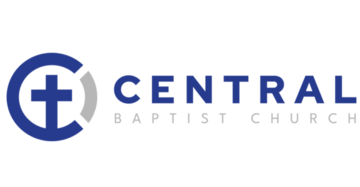In an effort to glorify God in all we do, we seek to provide a safe place for corporate worship, small group bible study, children’s activities, and various outreach and discipleship opportunities throughout the year and in various circumstances. That being the case, many of the activities and opportunities are likely to take place during the flu season or in cases of widespread illness and even pandemics. In order to continue to serve God by preaching, teaching, and living the Gospel to His glory, please refer to the following response plan in the event of pandemic outbreak as announced by the World Health Organization (WHO) and/or the Center for Disease Control (CDC).
April, 2020: We are currently at PHASE THREE of Central's Pandemic Response Plan.
PHASE ONE - ABSENTEEISM IS ESTIMATED AT 25%
- Identify one staff member or qualified lay leader to keep a regular check on local and state health departments, CDC, and FEMA. These updates are not to rely on social media or local news outlets.
- Contact all non-church organizations to inform them of heightened risk and give the opportunity to cancel upcoming activities with zero ramifications or risk of held deposits.
- Place hand sanitization stations at each entrance location and inform congregants of their placement.
- Communicate plan to church staff, ministry leaders, volunteers, and congregation using all means available, i.e. email, phone, social media, calling trees, etc.
- Communicate plan to non-church organizations that use the facility.
- Remind parents of well-child policy for nursery and children’s ministry.
- Remind nursery and children’s staff and volunteers of the cleaning policy.
PHASE TWO - ABSENTEEISM ESTIMATED AT 40%
- Post signage to encourage hand washing & sanitization at all entrances and begin to discourage physical contact during greeting times.
- Prop open all entrance doors or place greeters outside the doors to open them in order to reduce necessary contact with potentially contaminated objects, e.g. door handles, push plates, etc.
- Encourage the use of stationary offering receptacles rather than offering bags or plates. Also remind the church that online giving is available and encouraged.
- Per schedule for communion, elements will be served by deacons with disposable gloves.
- Restrict building access to non-church organizations and events.
- Limit building use for extra activities like weeknight Bible Studies, ministry events, etc.
- Limit pastoral care visits to in-person visits for essential needs only and phone calls, emails, etc for routine checks.
- Increase cleaning routine frequency in nursery and children’s ministry areas.
- Allow and encourage non-essential staff to work from home when possible.
- Communicate plan to church staff, ministry leaders, volunteers, and congregation using all means available, i.e. email, phone, social media, calling trees, etc.
PHASE THREE - ABSENTEEISM ESTIMATED AT 50-60%
- Limit corporate worship service to online posting of either a live service if possible or a previously recorded service.
- Encourage faithful, continued giving via the online portal.
- Ensure a deep cleaning and disinfecting of entire facility.
- Limit office hours for staff to one appointed day during a designated 5 day period and reassess based on frequent updates from designated staff or qualified lay leader.
- Communicate plan to church staff, ministry leaders, volunteers, and congregation using all means available, i.e. email, phone, social media, calling trees, etc. with frequent posts, updates, and encouraging words.
PHASE FOUR - DEESCALATION OF PHASES WHEN POSSIBLE
- When possible based on updates from designated staff or qualified lay leader, deemed appropriate by the down-scaling of pandemic status from the WHO or CDC, begin to step backwards through the phases as described above.
- Communicate the deescalation process with church staff, ministry leaders, volunteers, and congregation using all means available, i.e. email, phone, social media, calling trees, etc.
- Ensure that the deescalation process is no shorter than a period of 4 weeks in an attempt to prevent any regression or relapse of symptoms.
